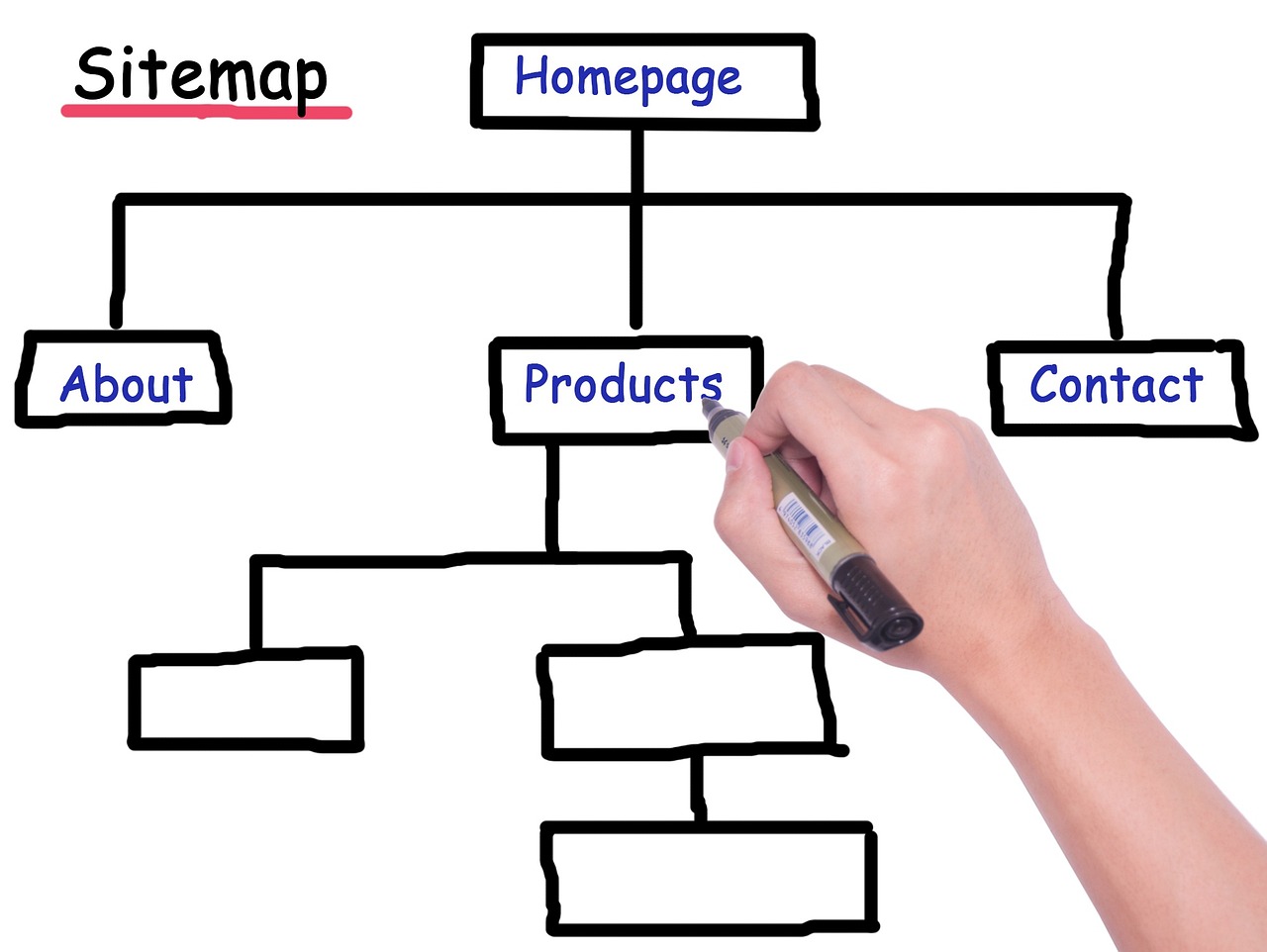In today’s digital world, having an elegant, user friendly, mobile responsive and secure e commerce website is critical if you are into ecommerce.
Whether you are starting a new ecommerce venture or you look to revamp your existing online store, you need to leverage the best e commerce website maker to achieve success.
With a myriad of website maker options, making the right choice can be a daunting task – and this is exactly why I have put this guide together to help you determine the best e commerce website maker – based on your business needs, budget, niche and preferences.
To simplify the guide: I will present what I consider to be three topmost e commerce website makers in their order of hierarchy: Shopify, Wix and BigCommerce.
Then: the guide will explore factors to consider when choosing an ecommerce website maker, review the top three platforms, outline steps to set up and promote an online store.
Understanding Your E-commerce Needs

The first consideration you need to make before you choose any e commerce website maker is your e commerce needs. Understanding your business needs – which in essence is your specific business needs and your goals; is the first step.
The one size fits all approach cannot work in choosing the best ecommerce builder for your business. One platform may be best suited for one type of a business but may not be suited for another.
So here are important considerations to make when you are choosing the best e commerce maker for your online store.
Identifying Your Specific Business Requirements Based on your Business Model
To identify your specific needs you need to answer the following questions:
What type of products or services are you dealing in? Are you selling physical products or you are selling digital products – or both? Do you sell services that require an online booking service or appointment scheduling?
What is your business scale and growth potential (real or projected)? Are you just starting out as a small boutique, or are you a mid-sized enterprise, or a large-scale operation? Based on the current size of your business, what does the prospect of future growth and scaling look like?
Do you have any special requirements? Does your product offering (or service) require any special and specific features or integrations -such as subscription management, dropshipping, or multi-language support?
Analyzing Your Target Audience and Market
Having dealt with business model questions, you need to answer questions related to your target market such that you can choose the best e commerce website maker to meet the expectations of your market. Answer the following questions:
Who is your target audience? Define what your ideal customer looks like. You can construct a persona for this to map out the demographics, preferences, and typical shopping behaviors of your target customers.
Where is your target market located? Is your target market (area) local, national, or international? This has an important bearing on the choice of payment gateways, shipping options as well as currency support.
What are your competitors doing? Have a look at what the other players in the market are doing and what solutions they are using. This way you can glean some best practices and also identify strengths, weaknesses, and opportunities you can leverage.
Budget Considerations and Pricing Expectations
How much the e commerce website maker costs is a big factor in your e-commerce business model. Some e commerce platforms offer free plans and some have low cost entry points while others have higher tier ongoing costs. Below are the important considerations you need to make with regards to the pricing aspect.
What is your budget for setting up the e commerce website (development and maintenance)? Determine how much you can afford to invest in an e commerce website. If you want to go the stand alone e commerce route you need to consider the cost and management implications of that.
You will need to hire a developer to set up the ecommerce website for you, implement all the required integrations (security, payment and shipping, etc) and maintain the website on an ongoing basis as well.
Over and above the hassles of handling the technical aspects of your ecommerce business, ultimately, this route winds up getting more costly than simply leveraging a solid e commerce website maker at an affordable monthly fee.
Platforms like Shopify actually offer a free plan to test the waters as well as low cost plans for startups – such that you only pay for what you need and only go to higher tier plans as your business grows, such that the platform sort of grows with your business.
In a nutshell you need to determine how much you can invest either in the development and maintenance of a secure and user-friendly standalone ecommerce website or monthly/annual fees of a robust e-commerce website maker.
For e commerce website makers, which subscription model works for you? Would you rather for for a monthly fee plan, or you would rather settle for a platform that charges transactions or a combination of both. The key here is to evaluate and identify a pricing structure that aligns with your budget.
What is your expected return on investment (ROI)? The objective here is to quantify the value (in monetary terms) of using whatever e-commerce website maker you choose to leverage.
Answering the questions above and making these considerations helps you to determine the e commerce website maker for your business needs.
The next section is focused on key features to look for in an e-commerce website maker so as to refine your decision making process.
Key Features to Look For
Selecting the best e commerce website maker requires that one understands the key features that make a good e commerce website maker.
Going for an online store maker with the right features will enable you to build an efficient, secure and user friendly online business. Below I explore some key features that make a good ecommerce website maker.
How User-Friendly is the Interface and How Customizable is the Online Store
Intuitive Website Builder: A good e commerce website builder has a user friendly online store builder. The platform must be user friendly for the online store owner to build a professional and highly customisable online store.
It must also enable the building of user friendly, and easy to navigate front store for the end users (online shoppers).
Templates and Themes: Does the e commerce website maker has a generous range of themes and templates to choose from? Also, do the themes come with customisation options that allow you to match your brand’s identity.
Code Access: As much as a good ecommerce platform is so user friendly such that no coding or design skills are required, it is important for a e commerce website maker to enable access to the code base for advanced use cases.
Check if the website maker allows you access to the website’s code for advance customisation.
Mobile Optimization and Responsive Design
Mobile Responsiveness: Make sure the platform supports and produces mobile friendly/responsive front stores and designs. Ensure that the platform supports responsive design, optimizing your site for mobile devices. Mobile traffic is significant in e-commerce.
Product Management and Inventory Control

Product Listings: Also consider how easy it is to add, edit, and manage product listings. You need a platform with robust product and catalogue management tools and features.
An e commerce maker with features for setting up comprehensive product features and product variants.
Inventory Tracking: It takes solid inventory management features and functions to run and manage a successful business online.
Check if the ecommerce website maker you are considering has the necessary inventory tracking features to help you manage stock levels, avoid stockouts and prevent overselling.
Payment Gateway Integration and Security Measures
Payment Options: Having a good range of payment gateway options is critical for the success of your online store. Most ecommerce consumers prefer to purchase using their credit cards, debit cards and digital wallets etc.
Make sure the ecommerce store you are considering is offering such options. Also consider if the platform has suitable payment gateways for customers located outside your country of location. Make sure you have sufficient and suitable payment gateways for all customers within your target audience.
Security: Consider e commerce website makers that comply with industry-standard security protocols. The platform must offer secure socket layer (SSL) certification for secure transactions.
SEO-Friendliness and Marketing Tools

SEO Capabilities: A digital store must be visible digitally. Check if the ecommerce maker allows you to optimize your ecommerce website for search engines. Pay attention to features such as customisable and SEO-friendly URLs, customisable meta tags, titles, etc.
Also check if the platform does produce sitemaps.
What is A Sitemap?

A sitemap is a link network representation of your website (in this case- online store). It indicates how your website is structured in terms of the hierarchy of pages and how the pages are linked and interlinked.
Marketing Tools: Consider the in-built marketing features of the eCommerce maker. Do the online stores built from the platform have social media integration, email marketing and discount code creation, etc.
Scalability and Growth Potential
Scalability: One thing you want to avoid is the nightmare of having to change ecommerce platforms as your online business grows.
You need to determine if the platform has features and capacity to handle projected growth and scaling of your online store without major disruptions.
App and Plugin Integration: Over and above the default features and functions of the online store built from the e commerce website maker you are considering, you need to check if the platform has a robust app store, plugins and integration ecosystem.
These are crucial for enabling custom functions to your online store beyond what the default features provide for.
Customer Support and Resources

Support Options: The choice of an e commerce website builder is a critical and a long term decision. The quality of the support service you get will determine the success of your online business. Is the platform accessible 24/7? Do they have live chat, email and telephonic support? Also check if the platform is active on mainstream social media platforms.
Knowledge Base: Does the platform have a comprehensive knowledge base where you can get your technical queries and questions settled.
Good ecommerce website makers have a comprehensive knowledge base as well as a vibrant fora and communities for support.
Having outlined the important aspects and features of an e commerce website maker above, I will now delve into comparison a dn review of the top three e commerce website makers.
In-Depth Comparison of E-commerce Website Makers

Shopify is a leading e-commerce website maker with an enormous market share of 28%.
Shopify‘s market capital is estimated at 74.09 billion as of the second quarter of 2023. The platform powers over 4 309 969 active online stores across the globe, with a 2,54% share of the top 1 million websites.
Let’s look at some of the key features that make Shopify the best e commerce website maker.
Ease of Use: What online store makers want is an intuitive and user friendly platform – and this is what Shopify excels in.
Shopify’s drag and drop interface makes the creation of online stores a breeze for beginners and experts with any design and coding skills.
Also, the platform has an expansive archive of highly customisable themes and templates which enable the creation of user- friendly online front stores.
Scalability: Shopify is built to cater to businesses of different sizes – from start-ups to large enterprises.
This means that startups can launch their online ventures on Shopify and limit their costs by only leveraging the features they need and only scale with higher features to grow your business.
It’s crucial to settle for an ecommerce platform that meets your small and start-up online venture needs while the platform is ready for the growth and scaling of your business.
Switching ecommerce platforms when your business is operational can be messy and detrimental to your business.
Variety of Templates: As mentioned earlier, Shopify has a generous range of high end and professionally designed online store templates.
The templates cater to different styles, niches and industries.
Also, the templates are optimised for mobile responsiveness to ensure that online stores created on the platform are user-friendly on both desktop and mobile devices.
App Store: Having leveraged Shopify’s robust features and highly customisable templates you may still need to add custom features and functionalities to your online store.
This is where Shopify’s app store comes in.
The app store is a robust ecosystem of third-party apps and integrations designed to enhance your store’s functionality in aspects such as advanced analytics, email marketing, drop shipping, etc.
Security and Reliability: Security is an important part of ecommerce. Online stores built on Shopify ship with SSL certificates to enable secure payment transactions.
Shopify also ensures 99.99% server uptime – making sure that your online store is always accessible.
SEO-Friendly: Visibility on search engines is an important part of ecommerce.
Shopify has laser-focused SEO features that allow you to customize the product page and create SEO friendly titles, descriptions and URLs.
This enhances your rankings and visibility on search engines and contributes to your traffic prospects. The platform also provides tools and guides to help you to improve your online store.
Payment Processing: Online Payment processing is a central aspect of ecommerce. An online store with a growing customer base requires a diverse set of payment gateway options.
Shopify excels in this aspect: the platform has over 100 payment gateways, including platform ‘s own proprietary payment gateway: Shopify Pay.
With Shopify, your online store can easily and securely service international customers.
Customer Support: A good e-commerce website maker must be complemented by an efficient customer support service. Shopify offers 24/7 customer support on these channels: live chat, email, and phone.
The platform has a vast knowledge base and active community of users (online store owners) where you can get answers and solutions before you even reach out to their support team.
Shopify
Pros
Cons
Wix e Commerce Website Maker Review
Website Builder: Wix has a versatile and user friendly website builder tailored for websites in different niches and styles, including e commerce.
The platform has a user-friendly drag and drop interface which comes with a wide range of templates.
App Market: While the platform does not have an app store or ecosystem as robust as that of Shopify, Wix does have various apps (Wix App Market) that can be integrated with your online store to extend its features and functionalities.
Design Flexibility: Wix online store builder and templates allow for more design flexibility compared to Shopify.
This makes the platform a good choice for small scale online stores that want highly customised and unique-looking stores.
Pricing: If you want to test the waters with Wix you can make use of the free plan. However the plan comes with limited ecommerce features.
For more advanced Wix’s ecommerce features and functions will need to subscribe to a premium plan.
Shopify‘s pricing is competitive and includes more e-commerce-specific features from the start.
Wix
Pros
Cons
BigCommerce e Commerce Website Maker
Robust Features: This is a powerful and solid ecommerce platform that is designed particularly for big online businesses.
The platform offers advanced features for inventory management, multi-channel selling and scalability.
Customization: The platform makes possible higher levels of customisation which enables online store owners to create high customised and personalised digital front stores.
The platform may however be overwhelming for beginners.
Pricing: Big commerce offers a range of pricing from $39 to $399 per (monthly) and $29 to $299 per month (annually). The platform tends to cost more than Shopify.
BigCommerce
Pros
Cons
The Best e Commerce Website Builders
Aspect | |||
|---|---|---|---|
Ease of Use | Extremely user-friendly with a simple interface and drag-and-drop customization. | User-friendly with a drag-and-drop builder. | User-friendly but may require some technical knowledge for advanced features. |
Scalability | Suitable for businesses of all sizes, from startups to large enterprises. | Scalable, but primarily suitable for small to mid-sized businesses. | Tailored for mid-sized to larger businesses with advanced scalability features. |
Templates | Offers a wide variety of professionally designed templates, all mobile-responsive. | Provides templates suitable for various industries and styles. | Templates are available, but customization may require more technical skills. |
App Ecosystem | Extensive App Store with a wide range of third-party apps and integrations. | Offers an App Market for e-commerce features, but not as extensive as Shopify‘s. | Provides advanced features but may require technical expertise for customization. |
Security & Reliability | High level of security, SSL certificates, and 99.99% uptime for reliability. | Provides security and uptime but may not be as robust as Shopify. | Offers security and reliability features suitable for larger businesses. |
SEO Optimization | Well-optimized for search engines with tools and guides for SEO improvement. | SEO-friendly but may require manual optimization. | Offers SEO features but may need additional optimization efforts. |
Payment Processing | Includes Shopify Payments and supports multiple payment gateways. | Supports various payment options, but Shopify Payments simplifies the checkout process. | Offers payment options suitable for different business needs. |
Customer Support | 24/7 customer support via live chat, email, phone, knowledge base, and a community forum. | Offers customer support, but not as extensive as Shopify‘s options. | Provides customer support suitable for larger businesses. |
Customization | Moderate customization options with user-friendly tools. | Offers more design flexibility compared to Shopify. | Extensive customization options for developers. |
Pricing | Competitive pricing with e-commerce features included in plans. | Paid plans required for advanced e-commerce features. | Slightly pricier, suitable for mid-sized to larger businesses. |
In summary, Shopify stands out as the recommended e commerce website builder for various factors including:
- Overall ease of use
- Scalability
- Template selection
- App ecosystem
- Security
- Customer support
Wix and BigCommerce have their strengths, nonetheless Shopify tops the charts as a well-rounded solution for businesses and online stores of all sizes.
Setting Up Your E-commerce Website
Whichever e commerce website maker you settle for: setting up your ecommerce website will involve the following steps:
Account Setup: Choose a plan that works for your budget and business needs and sign up.
Choose a Domain: Platforms like Shopify enable you to register a custom domain and connect it to your online store. You can also register and host your domain on Bluehost for as little as $2.95 per month (26 month plan).
Select a Template or Theme: Select a theme/template that aligns with your niche and branding guidelines.
Product Listing: Add your products to your online store. Write concise and accurate product descriptions, make use of high resolution product images, set prices, inventory information and product variants.
Ensure to include relevant calls to action like “Buy Now” to compel end users towards desired action.
Configure Shipping: Add shipping options and outline shipping rates as well as delivery methods. Set international shipping terms and rates as well if applicable.
Payment Gateways: Configure payment gateways to enable online. Most e commerce website makers enable secure payment processing off the shelf.
It’s important to set up tax settings so as to comply with local and international regulations. Also include legal pages in your online store to spell out: privacy policy, terms and conditions, returns and exchanges policy.
These pages are important for establishing trust and transparency with your customers.
Lastly, test your website thoroughly to make sure that everything works accordingly. Test for functionality, usability as well as security.
Ensure you have a smooth end user online shopping experience on both desktop and mobile.
Tips for Optimizing and Promoting Your eCommerce Website
Make sure that your online store is optimised for mobile use, as well as for Search Engine (SEO). Check for site load speed: slow page load speeds lead to a higher bounce rate (people leaving your site for other fast loading alternatives).
You can also develop a content marketing strategy that involves product centred blog posts, videos, etc – just to get more eyeballs to your brand and to your products.
Consider leveraging social media, pay per click advertising (PPC) to boost traction and traffic generation towards your online store.
Free Trials and Demos
The best way to get a real time experience of these e commerce website makers before you part with money is to sign up for free trials and demos.
This way you get to test the important features and aspects that have been covered in this guide. You will also get to test the quality of each platform’s customer service in cases where you have issues and need help from their support desk.
The free trial test drive will give you valuable insights.
Once you have settled for a particular e commerce website maker you can then start setting up your ecommerce website. This involves account set up, selecting a theme/template and customising it according to your branding and colors, adding product listing.
Final Thoughts
Choosing the best e commerce website maker is not just a technical decision, it is a strategic decision that has a tremendous impact on the trajectory of your online business.
So whether you are running a custom products online store, or a clothing boutique, book store, plant store, etc, your choice of an e commerce website maker will determine how far your business can go.
Remember that your decision making must be informed by your business’ unique business requirements and needs, budget and total cost of ownership (subscription fees, transaction costs, expenses related customisations, integrations and plugins), growth prospects, ease of use, etc.
Before you make the final decision just check user reviews and testimonials. Review platforms such as TrustPilot.com are useful for gauging user sentiment and how those who have a hands on the deck experience with each of e commerce website makers have experienced the service provided.


